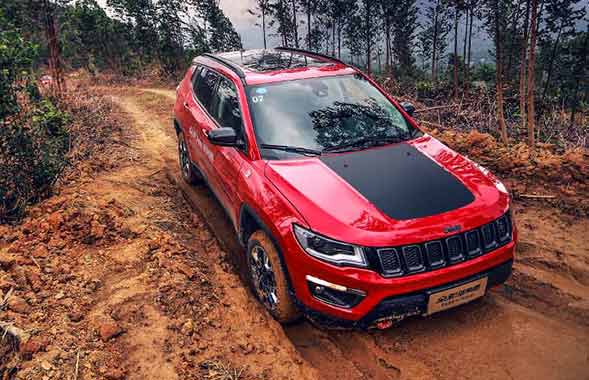General Motors takes hit to chase e-car boom
General Motors Co stands to lose as much as $9,000 on its electric subcompact Chevrolet Bolt. Sounds crazy, but it makes perfect business sense under the no pain, no gain policy driving the electric-vehicle boom in the US.
California crafted the doctrine, with tough clean-air rules and a mandate that automakers sell some nonpolluting vehicles if they want to do business in the state, and nine others have adopted it, including New York and New Jersey.
The states' rules are set to tighten so that zero-emission vehicles, or ZEVs, will have to increase by an estimated 15.4 percent of sales by 2025, some five times the current level.
The hurdles may go even higher in California, where greenhouse-gas emissions are required to be 40 percent below 1990 levels by 2030. To get there, ZEVs, plug-in hybrids or fuel-cell cars may have to comprise 40 percent of sales, up from about 3 percent now, according to the California Air Resources Board staff projections.
"The idea that automakers will sell 40 percent of their vehicles at a loss in California is ludicrous," said Eric Noble, president of CarLab, a California-based consulting company, who reckons most electric cars lose at least $10,000 per sale.
The industry's willing to take the hit on a small scale now. Fiat Chrysler Automobiles NV's battery-powered Fiat 500e is made for California alone, and Chief Executive Officer Sergio Marchionne said in 2014 that it was losing $14,000 per sale.
The industry might figure out how to make zero-emission cars into money makers once the charging-station infrastructure is built up and battery costs fall. Global demand seems sure to rise, with major economies, including China, having recognized climate change as a threat and emissions from gas-powered autos a chief contributor.
The US has a zero-emission vehicle incentive, offering a $7,500 tax credit to buyers, and also gives credits to manufacturers to reward them for cars that meet the greenhouse-gas reduction targets set by the Obama administration.
On Wednesday, the US Environmental Protection Agency took a formal step to make it harder for President-elect Donald Trump to undo Obama's targets. EPA Administrator Gina McCarthy announced a preliminary determination that Obama's 2025 targets are achievable, affordable and appropriate.
Whatever happens in the national capital, California will be where the power is for years to come. The bill that established its greenhouse-gas targets was championed by then-Governor Arnold Schwarzenegger.
Under the rules, GM needs to sell enough Bolts so that it can sell other vehicles, including pickups and SUVs. The Bolt's anticipated per-sale loss of roughly $8,000 to $9,000 is an estimate based on a sticker price of $37,500, according to a person familiar with the matter.
Here's how the math works for GM in California: Let's say it sells a total of 219,962 vehicles in one model year (as it did, in fact, in 2015). To avoid heavy fines or the threat of getting shut out entirely, it would need state-awarded ZEV credits equal to 14 percent of the total-or 30,794. That would mean finding buyers for 7,698 Bolts, earning four credits for each, or 10,082 Chevy Volt plug-in hybrids or a combination of the two.
"Electric vehicles are compliance vehicles and GM knows this," said the CarLab's Noble. "The Bolt will take sales from all of the other vehicles on the market, and GM will get a lot of credits."
The more ZEVs a company peddles to the public, the more credits it earns, and those with a surplus can sell them to competitors that are falling behind. Tesla has been able to really tap the program. In the third quarter, it made $139 million by selling credits, which helped Tesla hit its second-ever quarterly profit on a GAAP basis.
The US is one-fifth of the global car market, and groups ready to go to battle over emissions like to offer an argument beyond the threats of smog and global warming. California's policies are forcing companies to be innovative, said Luke Tonachel, a senior analyst for the Natural Resources Defense Council. If they stop, "US manufacturers could lose market share."
Bloomberg























